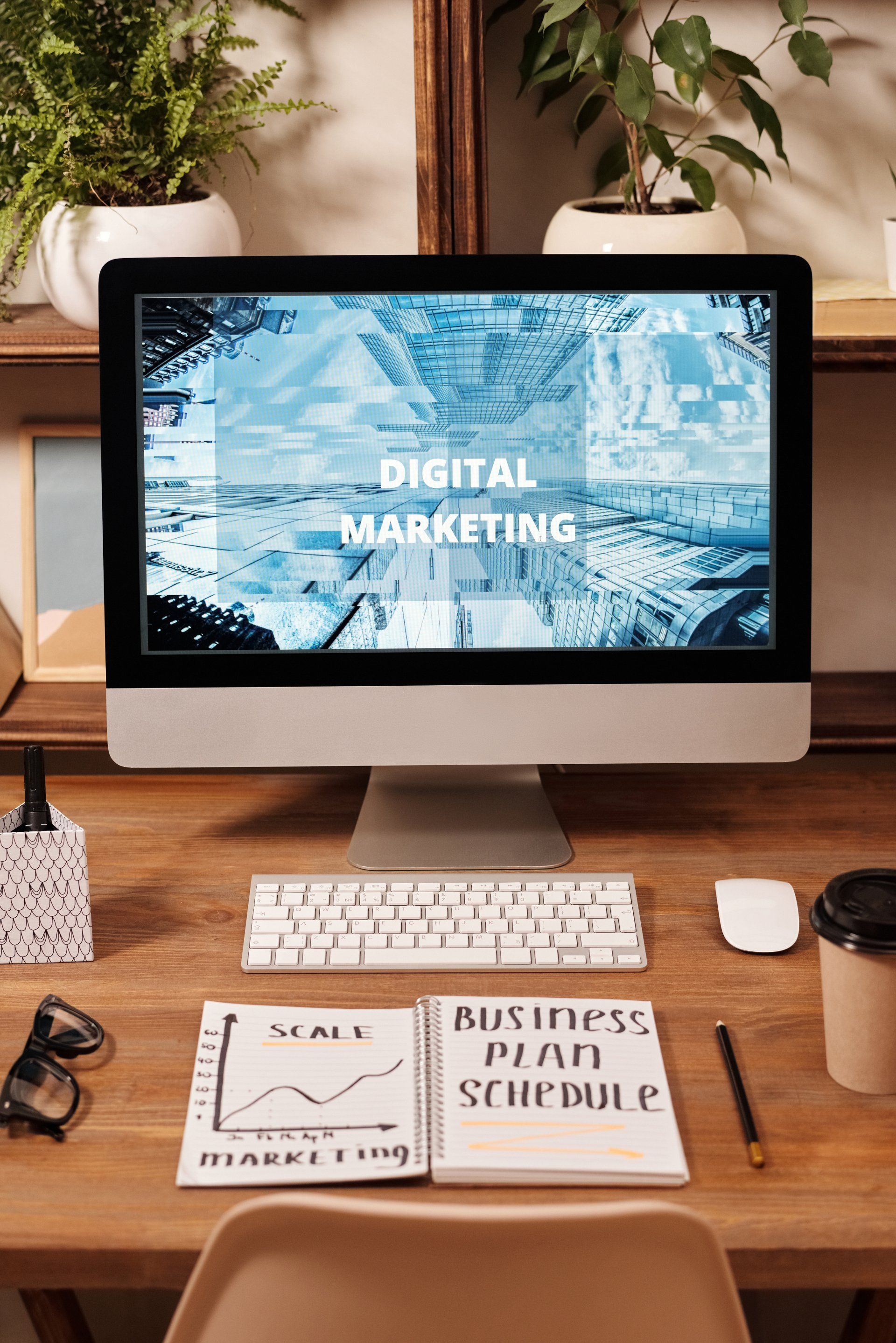How Combining Facebook and a Website Can Help Your Small Business Thrive
Learn how to leverage the strengths of both platforms to reach more customers and boost your online presence
As a small business owner, having an online presence is crucial for reaching new customers and growing your brand. Social media platforms like Facebook have made it easier than ever to connect with potential customers and promote your products or services. However, while a Facebook business page is a great start, it's not the only tool you should be utilising. Building a website is an essential step in creating a comprehensive online presence that can help you take your business to the next level.
In this blog post, we'll be exploring the many benefits of combining a website with your Facebook business page. From branding and credibility to reach and analytics, we'll show you how utilising both platforms can help you thrive.
We'll also address the common reservations that small business owners may have about building a website and using Facebook such as cost, maintenance, technical skills, and time.

Branding & Credibility
When it comes to branding and credibility, having a website can give your small businesses a significant advantage over relying on a Facebook business page alone. A website allows you to create a unique brand identity that sets you apart from your competition.
To create a cohesive online presence, it's important to have a consistent branding across all platforms, including your website and Facebook page. This includes using the same logo, colours, and messaging across all platforms. Additionally, it's important to use high-quality images and videos, and to keep your website and Facebook page up-to-date with fresh content.
According to a survey by Verisign, 84% of consumers believe that a website makes a business more credible. It also allows you to control the messaging and image of your brand, giving you more control over how customers perceive your business and can help to build trust and credibility with your customers.
While a website can give credibility to a small business, it's important to note that it also requires a certain level of commitment and investment. Building a website can be expensive and time consuming, especially when you consider the regular maintenance and updates needed to ensure that it remains secure and functional.
However, the benefits of having a website far outweigh the costs and reservations. It’ll help your small business to establish an online presence, it can help you reach a wider audience, help you to promote your products or services in a more professional way and generate more leads and increase your sales.

Reach & Audience
Having both a website and a Facebook business page can be a powerful combination for small businesses. Your website can potentially reach a wider audience than a Facebook page, as not everyone uses Facebook and some people may prefer to shop on a standalone website. According to a survey by BrightEdge, organic search is the primary source of website traffic for more than 51% of all websites. A website can help you to reach those customers who are actively searching for products or services like yours.
On the other hand, Facebook has over 2.8 billion monthly active users, making it the largest social media platform in the world. By using Facebook, you can reach a large audience and connect with potential customers in a way that is more personal and interactive. Facebook can be a great way to connect with your customers, and it can be a great way to build relationships with them.
Understanding where your customers are and how to reach them is crucial for any small business. By using both a website and a Facebook page, you can increase your reach and target different audiences. For example, you can use your website to target customers who are actively searching for products or services like yours, and use Facebook to target customers who are interested in your products or services but may not be actively searching for them.
In addition, by understanding your audience, you can tailor your marketing efforts to reach them more effectively. A website allows you to track customer behaviour, conversion rates, and other important metrics. This information can be used to inform your marketing strategies and optimise your website for conversions. Facebook also provides analytics on its platform, which can help you gain a better understanding of your audience and their behaviour.

Analytics & Control
A website will give you access to more detailed analytics on visitor behaviour and conversion rates, which can help to inform marketing and sales strategies. This data can give you a better understanding of your customers and the way they use your website, which can help you to improve your marketing and sales efforts. According to a survey by Econsultancy, businesses that use analytics to inform their marketing strategies see an average of 23% growth in revenue.
Facebook also provides analytics on its platform, which can help you gain a better understanding of your audience and their behaviour. This information can help you to create more targeted and effective marketing campaigns and help you to understand how your customers interact with your business.
However, it's worth noting that some small business owners may have reservations about using analytics. They may feel overwhelmed by the amount of data available, or they may not have the technical skills to interpret the data. It’s important to remember that there are many tools and resources available to help small business owners understand and use analytics. Additionally, it's important to remember that you don't have to track and analyse every single metric. Start by focusing on a few key metrics that are most important to your business and gradually expand from there.

Combining Facebook & your Website
Using a combination of a website and Facebook page, small business owners can create a cohesive online presence and leverage the strengths of both platforms. When it comes to combining your website and Facebook, there are a few key strategies you can use to create a cohesive online presence.
One effective strategy is to use your website as the primary source of information about your business, such as products, services, and contact information, whilst using Facebook to connect with customers and promote your business. This allows you to use the strengths of each platform to their fullest potential.
Another strategy is to use your website to promote your products or services and use Facebook to connect with customers and build relationships. This lets you use your website to generate leads and sales, and use Facebook to build customer loyalty and trust.
There are many examples of businesses that have successfully used both a website and a Facebook page to grow their business. For example, a small retail business can use a website to promote their products, and use Facebook to advertise to their customers and build relationships. Similarly, a small service-based business like an electrician or mobile hairdresser, can use a website to generate leads, and use Facebook to connect with their customers and build trust.
It's important to understand that many small business owners may have common reservations when it comes to combining a website and Facebook page such as cost, technical skills, time and maintenance. It's important to find affordable solutions, such as website builders and templates, and to take advantage of the many tutorials and guides available online that can help small business owners learn the technical skills required to build and maintain a website.
Many web hosting companies also offer website design, maintenance and security services that can help small businesses keep their website up to date and secure. These services can take care of regular updates, backups, and security measures, so small business owners can focus on other aspects of their business. We offer a similar service with all our website design packages, called
WebCare. Along with automatic updates and security, clients can contact us with any changes they’d like made each month and we’ll update their website for them.

Conclusion
In conclusion, having a website and a Facebook business page can be a powerful combination for your businesses. A website can help with branding and credibility, reach a wider audience and promote products or services in a more professional way. Your Facebook page can be used to complement your website's branding efforts, reach a larger audience and connect with customers in a more personal and interactive way.
However, building and maintaining a website can present some challenges for small businesses such as cost, technical skills and time. Facebook, on the other hand, is relatively easy to use and does not require extensive technical skills, but it does require time and effort to create and maintain a business page.
By understanding the benefits and challenges of both platforms, small business owners can make a more informed decision about which platform is best for their business. It's important to remember that there are many affordable options available for businesses looking to build a website, and many resources and tools available to help business owners overcome the technical and time challenges associated with building and maintaining a website.
Share it
Recent Posts


